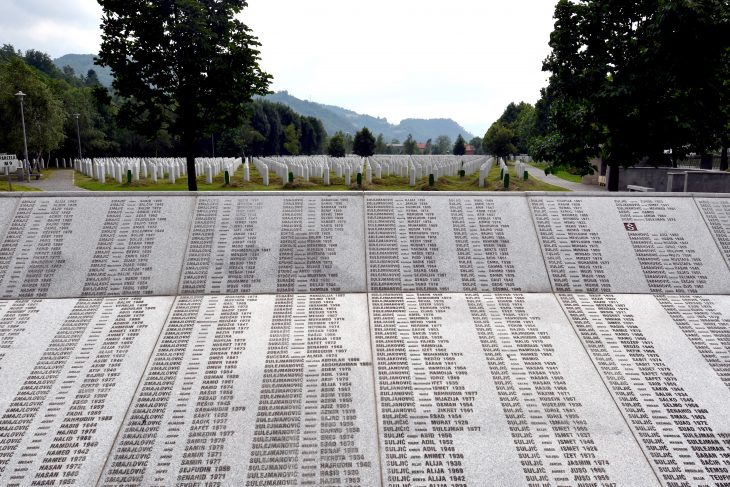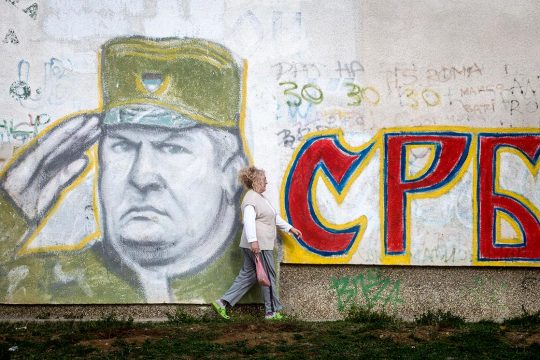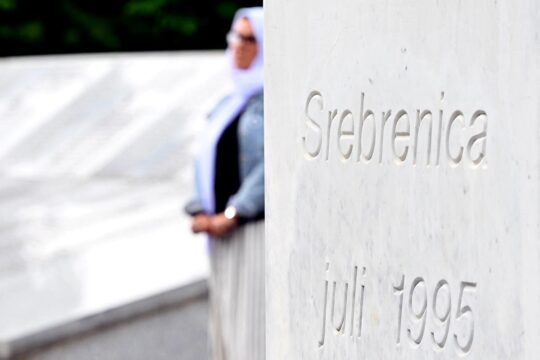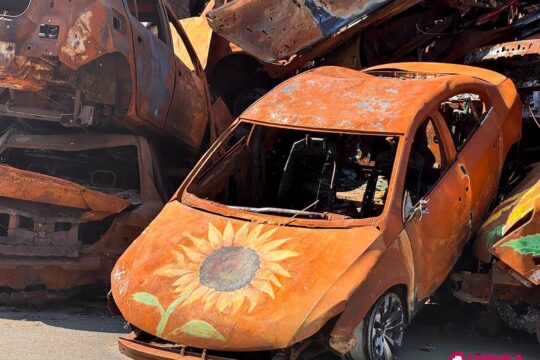Just a week before handing over, on August 1, UN High Representative for Bosnia Valentin Inzko of Austria used his so-called “Bonn powers” under the 1995 Dayton Agreement to amend the Bosnian Criminal Code. The goal is to penalize those who “publicly approve, deny, grossly minimise or attempt to justify the crime of genocide, crime against humanity and war crime”, and make them liable to jail sentences of six months to five years. In practice, this would relate to denials of the 1995 Srebrenica massacre of Muslim Bosniaks by Serb forces, which has been deemed genocide by both the International Criminal Tribunal for the former Yugoslavia (ICTY) and the International Court of Justice (ICJ).
Emir Suljagić, director of the Srebrenica Memorial Center, says Inzko’s move is a “relief” in a climate of increasing genocide denial by some Bosnian Serbs and in Serbia. “If you're a survivor, what you hear in genocide denial is ‘we will do it again and, by the way, what we did last time wasn't really genocide’,” he told Justice Info. “I hear it as a threat, and a promise of more violence.”
But for many Serbs, the idea of criminalizing genocide denial is an affront to their very identity. “This legal term of genocide has a lot of political weight,” Luka Šterić, a researcher at the Belgrade Centre for Security Policy, told Justice Info. “The [Serb] population are very unwilling to accept that, and you can’t impose a narrative, you have to try to change it slowly.” Šterić says it will only deepen the existing constitutional and institutional crisis in Bosnia and fuel the narrative among some Serbs that what happened in Srebrenica involved serious crimes but was not genocide. Otherwise, he says, Bosnian Serbs fear their entity will be seen as founded on genocide. “In Republika Srpska, very few people will accept the decision by the Hague tribunal several times that there has been a genocide in Srebrenica, because in their heads that would delegitimize the whole notion of existence for Republika Srpska.”
Serb backlash
Backlash from leaders of the Bosnian Serb entity Republika Srpska was swift. Since August, they have been boycotting federal institutions and refusing to talk to the new High Representative, Christian Schmidt of Germany. In addition, the Bosnian Serb assembly has passed amendments to the Criminal Code of Republika Srpska introducing criminal punishments for anyone who presents the entity as genocidal, and some hardliners have said that police will, in the event, prevent imprisonment of any Serbs accused of genocide denial. Šterić says it has deepened not only political but also legal instability in the country, with two criminal codes that are diametrically opposed, and this will not serve victims. He thinks Inzko’s decision is “very unproductive”. “If the goal was to serve transitional justice and change the narrative in Bosnia, it has actually had the completely opposite impact,” he told Justice Info.
Inzko’s decision was hailed as “historic” by the leaders of Bosnia’s Muslim-Croat entity. Bakir Izetbegovic, leader of the main Bosnian party (SDA), congratulated Inzko “for having ended his term of office in Bosnia with dignity”.
But the hardline Serb member of Bosnia’s tri-member presidency Milorad Dodik called Inzko’s move a “red line”. In an act of provocation, he reiterated that what happened in Srebrenica was not genocide and challenged federal prosecutors to come and get him.
Will the new ban be applied?
In this fraught context, Šterić doubts the criminal penalties will be applied, or only “to some very limited extent just to demonstrate that they're alive”. The courts will be aware of the political and social consequences of jailing Serbs for genocide denial, he believes.
Suljagić is not confident either that the new penalties will be applied. “There is more than enough material for the prosecutor of Bosnia-Herzegovina to move on this. But we're not seeing it, because the Bosnian judiciary and the office of the Bosnian Prosecutor are deeply, deeply corrupt,” he told Justice Info.
Climate of genocide denial
Inzko justified his last minute move in a statement, saying he decided to use his powers after waiting years for Bosnia’s politicians to act. He cited a refusal by the Bosnian Serb assembly to withdraw decorations awarded to three convicted war criminals. “The situation has gotten worse and is now getting out of hand. Therefore, I believe it is now necessary to regulate this matter with legal solutions,” he stated.
In June, the Srebrenica Memorial Center’s latest report noted that “genocide denial, including the glorification of war crimes and criminals, remains widespread in Bosnia and Herzegovina (BiH) and neighbouring countries.” Over the course of the past year, the Center identified 234 instances of genocide denial in the regional public and media discourse. The vast majority occurred in Serbia (142), followed by BiH (60), and Montenegro (19). The three most common rhetorical tactics used, according to the report, are “disputing the number and identity of victims”, “conspiracy theories which challenge the rulings and integrity of international courts”, and “nationalist historical revisionism”. The Center published its first report on genocide denial in 2020 but did not quantify cases in the same way, making a comparison difficult.
Suljagić says the Bosnian Serb entity has invested political efforts and money “in its genocide denial strategy”. Notably, in an attempt to convince the international community, it mandated a nominally independent “International commission of inquiry on the sufferings of all peoples in the Srebrenica region between 1992 and 1995”, led by an Israeli. Although nuanced with an understanding that heinous crimes were committed and should be punished, the report of that commission concludes that “neither an individual crime of genocide nor genocide in general took place in Srebrenica”.
Suljagić dismisses the authors of this report as mostly anti-Muslim extremists. Šterić thinks the credibility of the commission is not even an issue, as it is just part of ongoing Serb efforts to get their narrative heard.
What’s next?
Šterić thinks Inzko’s belated move might signal a desire of the international community to get tougher on Bosnia, with its institutional fragility and eternal existential tensions, not only between Bosniaks and Serbs but amongst Serbs and between Bosniaks and Croats. The “Bonn powers” conferred on the High Representative give him the right to act in case of a political stalemate and “impose his will” to break it, explains Šterić. These powers were used a lot during the 1990s, just after the end of the Bosnian war when the new institutions were young. But until July 2021, they had not been used for 12 years. “The fact that this precedent has been set and the powers have been used after all this time maybe demonstrates that the international community is sick and tired of this political crisis in Bosnia,” he says. “Maybe there's an attempt to create change, to revive this mechanism of action to try and overcome the dysfunctions of the institutions.”
But he still thinks it is counterproductive. The genocide denial ban is likely to fuel more rhetoric on all sides, adds Šterić, but all political sides are aware of the consequences of taking this further. “I don't think that Republika Srpska has the support of any significant international actor to push forward with some kind of independence,” he says, while pointing out that crises in the Balkans are nevertheless unpredictable.
Meanwhile the new High Representative, in office since August, seems to be taking a rather neutral and conciliatory stance so far, say both Šterić and Suljagić. But it remains to be seen.








